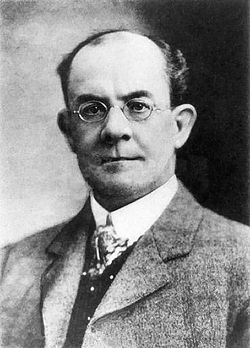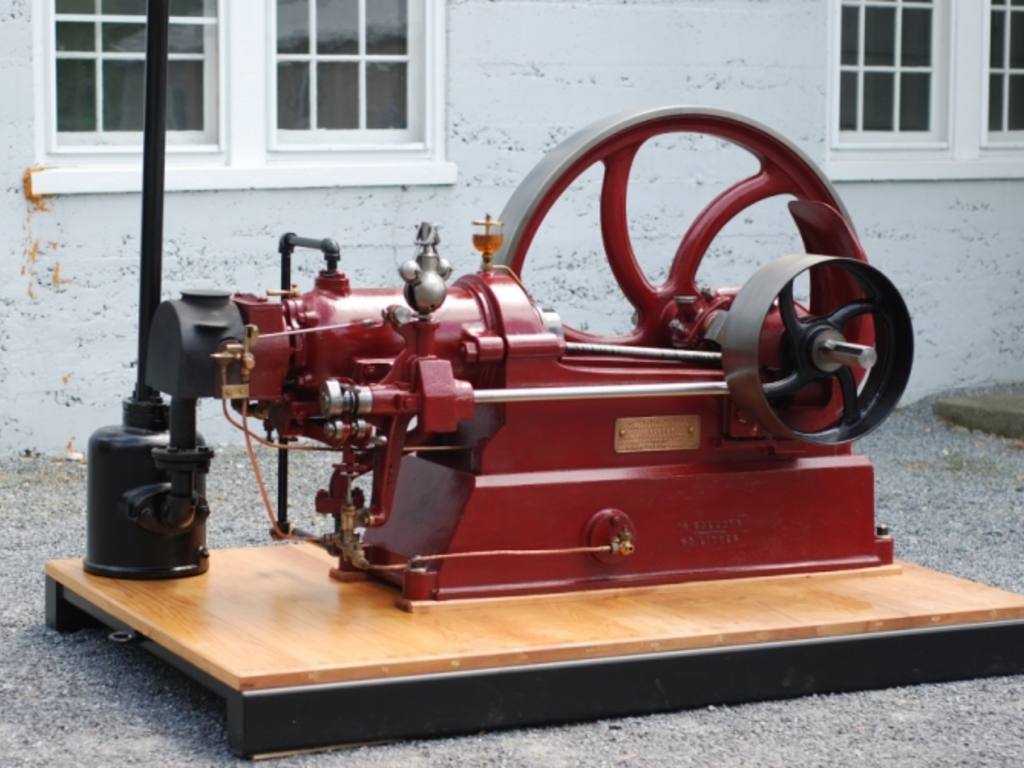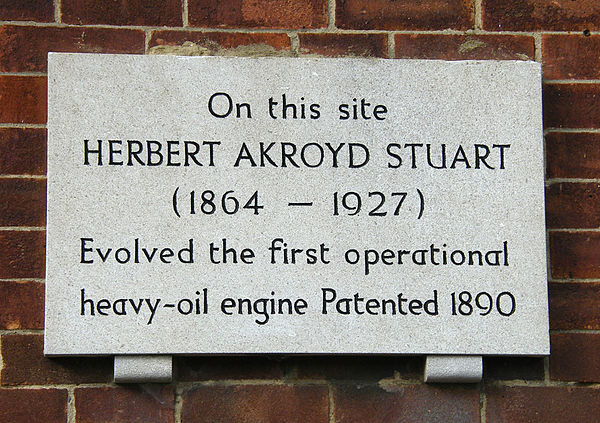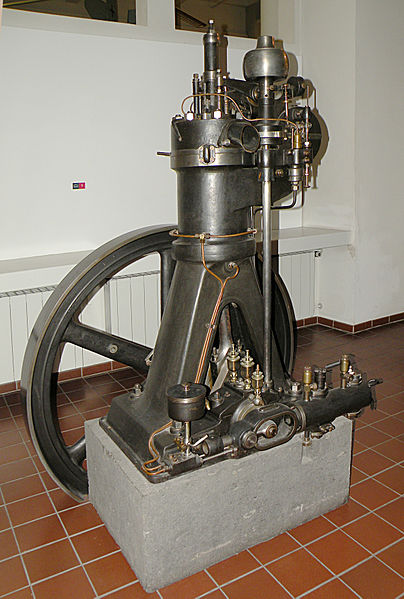Hornsby-Akroyd 1891
 | |
| Born | 28 January 1864 Halifax Yorkshire |
| Died | 19 February 1927 | Age 63 Halifax |
The Hornsby-Akroyd oil engine was the first successful design of internal combustion engine using "heavy oil" as a fuel.
- 1794:The earliest mention of an oil engine was by Robert Street, in his English patent no. 1983.
- 1823: Samuel Brown patented the first internal combustion engine to be applied industrially.
- 1838: William Barnett's engine made two great advances. His two stroke engine was so constructed that the mixture of gas and air was compressed motor cylinder before ignition by an 'ignition cock' to explode the mixture.
- 1878: Dugald Clerk designed the first two-stroke engine with in-cylinder compression patented in England in 1881.
- 1884: British engineer Edward Butler constructed the first petrol internal combustion engine. Butler invented the spark plug, ignition magneto, coil ignition and spray jet carburetor.

Into mass Production
Akroyd-Stuart's engines were built from 26 June 1891 by Richard Hornsby and Sons, a large manufacturer of steam engines and agricultural equipment, as the Hornsby Akroyd Patent Oil Engine under licence and were first sold commercially on 8 July 1892. It was the first internal combustion engine to use a pressurised fuel injection system. The engine was hugely successful. During the period from 1891 through 1905, a total of 32,417 engines were produced.
They would provide electricity for lighting the Taj Mahal, the Rock of Gibraltar, the Statue of Liberty (chosen after Hornsby won the oil engine prize at the Chicago World's Fair of 1893), many lighthouses, and for powering Marconi's first transatlantic radio broadcast.
Diesel engine

Rudolph Diesel engine was developed from around 1897. Akroyd filed a patent infringement against Diesel. But the secret of Diesel's engine was superior compression and torque and it was designed to run on arachis, peanut or vegetable oil not heavy fossil fuel-oil (Diesel) as a small stationary engine for farmers who would be able to produce their own fuel.


